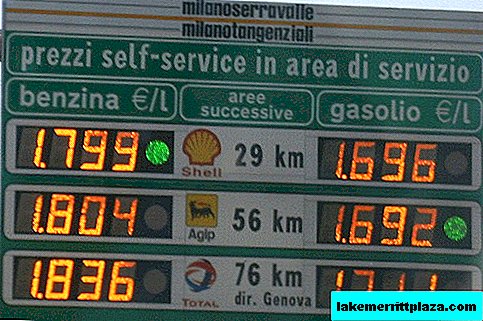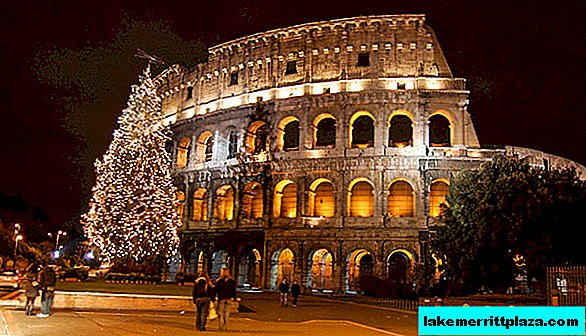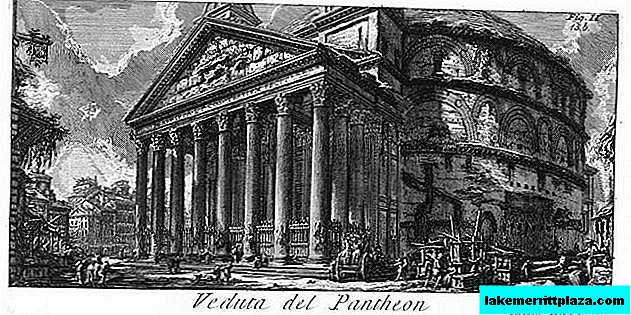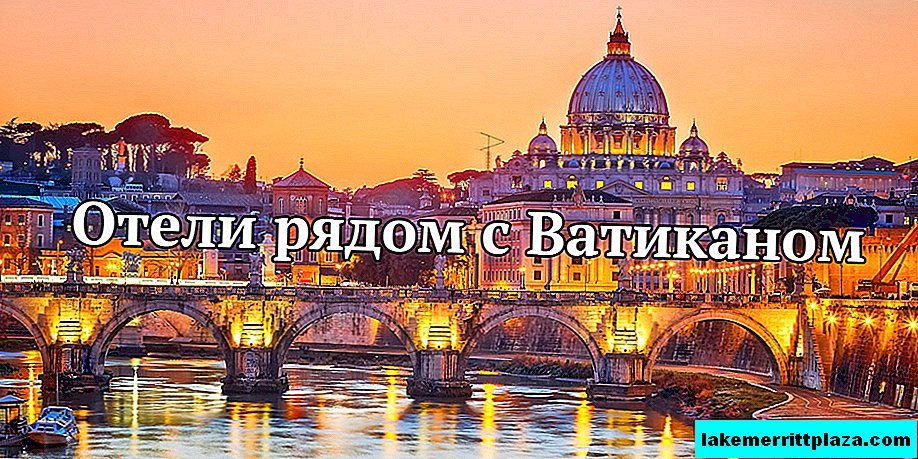This is not an advertisement. This is a post born of long thoughts on the topic + very useful reviews from tourists who visited Rome on their own, both with a book / audio guide in their hands and with a private guide. Therefore, I will modestly describe 3 points on my personal list of must see attractions that I would visit with a living person, and not with a book.
Antique rome
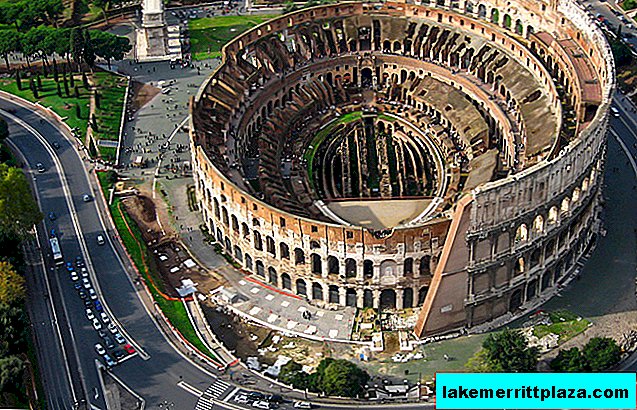
You can watch antiquity without a guide. To understand is not always. Why? There are reasons for everything. Well, for example: once I arrived in Rome and went to inspect the Colosseum and the Roman Forum. I was prepared, and with me was a great guide. He was beautiful and unforgettable. I stopped at all the temples and ruins, and read passages from the book.
At the 20th minute of this “Exercise,” I slammed the most interesting guide in the world, took a quick picture of everything I could, and left. And I for a minute! art historian, and in principle a lover of history and archeology. It’s just one thing to sit at home with a book and plans, and quite another to enjoy a walk and catch this moment of getting high and the delight of the fact that I'm in Rome now, wow wow wow !!!
I don’t know how other “persistent tin soldiers” feel at this moment, but I literally go out of mind reading a book when there is sun, a blue sky, green pines and other beauty around me. And here is the answer to the question "Why do I need a guide?" begs itself: a good guide will not only highlight all the accents, but will also tell you interestingly, show reconstruction of ancient buildings in their original form, explain how everything was and why it now looks like this. But most importantly, a good guide will build a more or less coherent picture in the story. The guide’s task is to arouse interest, to quench thirst, but first of all (I think) - to build in the person’s head a certain system, what came from, where did it go, what’s it all for.
In general, the best guideline for any guide before conducting an excursion is honestly to ourselves to answer briefly and thesis to the questions “Why is this cool? Why should I make customers look at this? why is it a must see? ” And then just open the theses on the tour. So much for the “main words”.
One more example. Imagine yourself in Ancient Ostia or at an excavation in Pompeii. Yes, landscapes. Yes, cool and grand. Before me is a bunch of some beautiful ruins, but nothing is clear. And even there are no sensible signs with signatures. Yes, there is a map.
Recommended excursions in ancient Rome:
Borghese Gallery

If you are not a sculptor or an artist, then the guide in the Borghese Gallery will definitely not hurt you. There are no audio guides in Russian, so either read everything in advance at least about Bernini and Caravaggio, or get ready to tremble before the masterpieces, not always understanding where you need to look there, except for all known angles and details.
And yet, even artists and people from the sphere of art are often not aware of any cool details of the stories of masterpieces, therefore a guided tour in Borghese is always relevant and exciting. Unless, of course, the guide is not a bore.
I see this excursion like this: immersion in an era, its mores, a story about why and why the gallery was built, as well as the whole villa. Not telling the story of the gallery owner is a crime: the identity of the papal nephew is the key to understanding the formation of the collection. It will also be useful to refresh some plots of paintings and sculptures - not everyone is sleeping with a Bible or Ovid in an embrace. It is also useful to tell some technical things, but without going too far. Only if the public is very asking. The guide differs from the art historian in that the guide should be a good and interesting storyteller, storyteller.
The guide must make sure that even the most remote from art people are not just admired, but, through your stories, REMEMBER really important things. And he carried them in his heart through kilometers, and - ideally - for many years to come.
In my opinion, the conscious presentation of the material is very important: what we look at, why exactly this, from what perspective we look at it. If the purpose of the excursion is not set initially and is not clearly outlined, then the client will have cereal, confusion, and the anarchy of cockroaches-revolutionaries who overthrew the king at the exit.
Vatican Museums
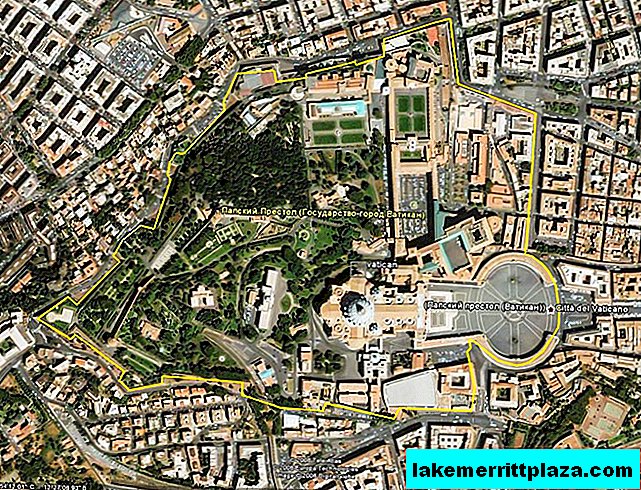
Everything is complicated with the Vatican. To begin with, it would be nice for the client to read what the Vatican is and what it is eaten with (whether you want to go to gardens, museums, or just to St. Peter's Basilica). If you have already decided what you specifically want to see in the Vatican, and the choice fell on the MUSEUMS, then you have 2 alternatives:
- to see everything yourself with an audio guide in your hands, to drive away in the womb of museums for the whole day, and eventually crawl out of them when the pot is no longer cooking;
- or delegate this organizational hemorrhoids to a person who - yes, will take a fee for it, BUT will save your time, because:but) knows where to go;b) correctly emphasizes what is important to see and what can be missed;at) it will logically, interestingly and with pictures tell you why the Sistine Chapel is so cool and that's all.
From experience, I’ll say that even the most fierce art critics at 5-6 o’clock in museums soothed so that no longer want anything. Well, maybe a glass of Jack. Which is Daniels. In the format of #dated two.
- Recommended excursions with a visit to the Vatican are in this section.
I will not recommend a walk around Trastevere or the city exclusively with a guide here, because everyone has different views on exploring the city, and someone wants to discover new things and breathe in this city on their own, and it’s cooler for someone to do this in the company of a person who can tell a bunch of useful and interesting + dilute the standard attractions with chips that only local people know. But the choice is again up to the client.
Now let's talk about me. Here I am - a guide.Why would I take excursions for myself in other cities, and which ones?
 I am vacationing. It is simply hard to imagine a more attractive client than me: I agree with everything, I will subscribe to any kipish, I finally like everything. I'm not smart. I listen halfheartedly, but very convincingly assent (a lot of experience in the family, believe me). I’ll pay how much they say. I do not do the brain with logistics and timetables.
I am vacationing. It is simply hard to imagine a more attractive client than me: I agree with everything, I will subscribe to any kipish, I finally like everything. I'm not smart. I listen halfheartedly, but very convincingly assent (a lot of experience in the family, believe me). I’ll pay how much they say. I do not do the brain with logistics and timetables.Before traveling, especially before short-term trips to Europe, I do not read anything from the history of the city and country. I don’t even write a must see list.I am so professionally deformed that I want to turn off the guide and art critic on vacation. I don’t give a damn about billions of paintings, museums, churches, excavations, I don’t set impossible tasks and I’ll look better but less, but better.
If I plan to see something very sunken in my head in a short time, I often look for interesting people in this city and ask them to organize everything. I am delegating this responsibility to another person, and am ready to pay for it. Because for me the most valuable thing on vacation is my time. I am too lazy to spend my time on forums in search of all kinds of life hacks such as “how to save 3 pennies on a ticket or a bus trip there”.
At the same time, I like to “breathe” the city, wander around the streets, photograph door handles and people, there are delicious things. There will be a standing church or museum along the way - wonderful, but I will not go specifically to churches, even with a billion masterpieces. I’m trying to look for guides for walking around the city not in the agencies, but on the Internet or Instagram to find funny and creative guys who would take me to all kinds of cool places like roofs and dungeons, gates and alleys, where exactly the figs would go. It would probably be a pleasure to go to museums with an interesting storyteller, however, in 2-3 days the turn of museums in the city, as a rule, does not come. Museums are a reason to return, unless, of course, we are talking about something sooo outstanding. It was very difficult for me to switch to this scheme. But sometimes we change, and with us our priorities.
Well, startled. I was a little smart, and how nice she went to work again
Heat to you. Solar and human.
Your M.


